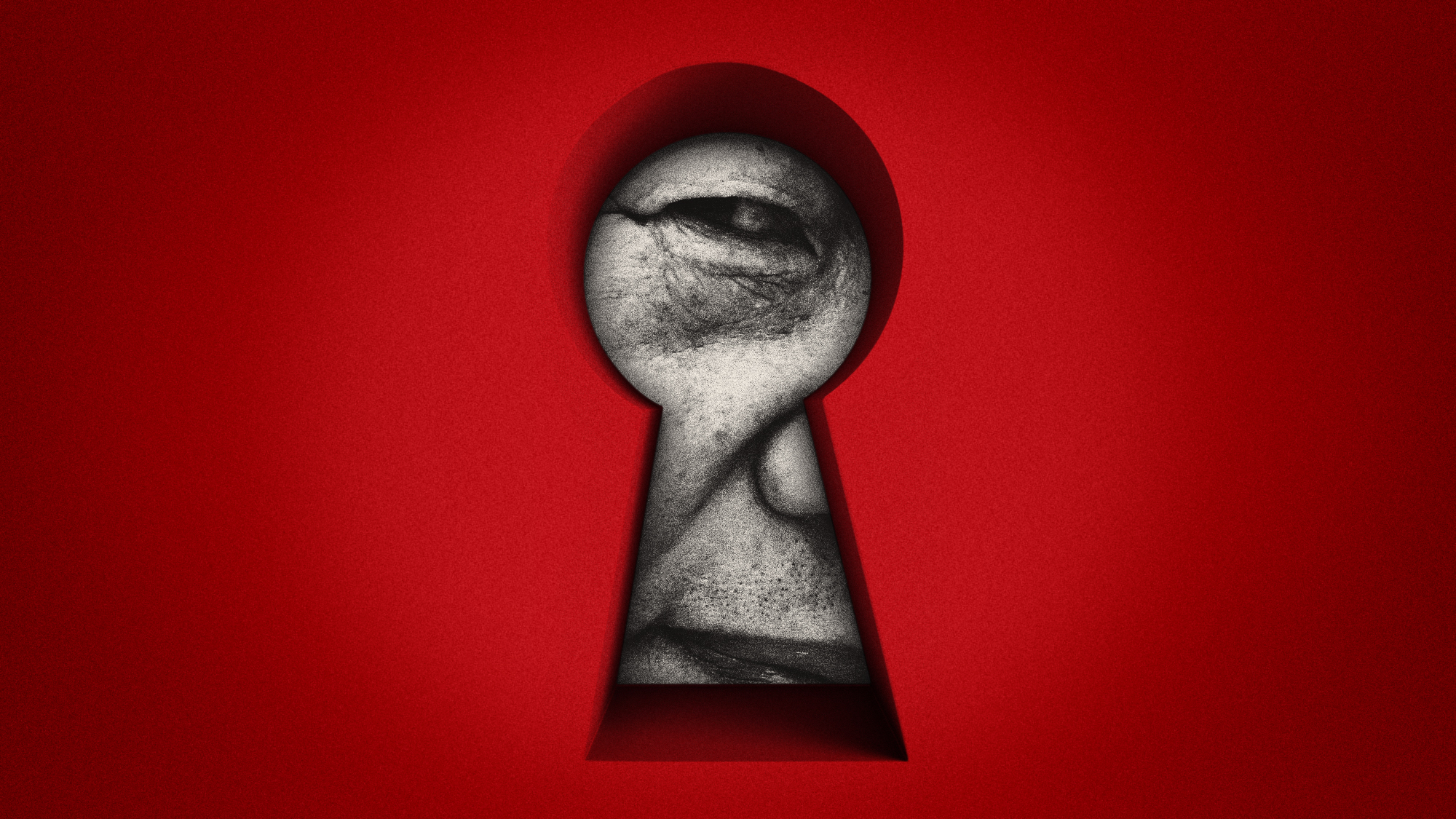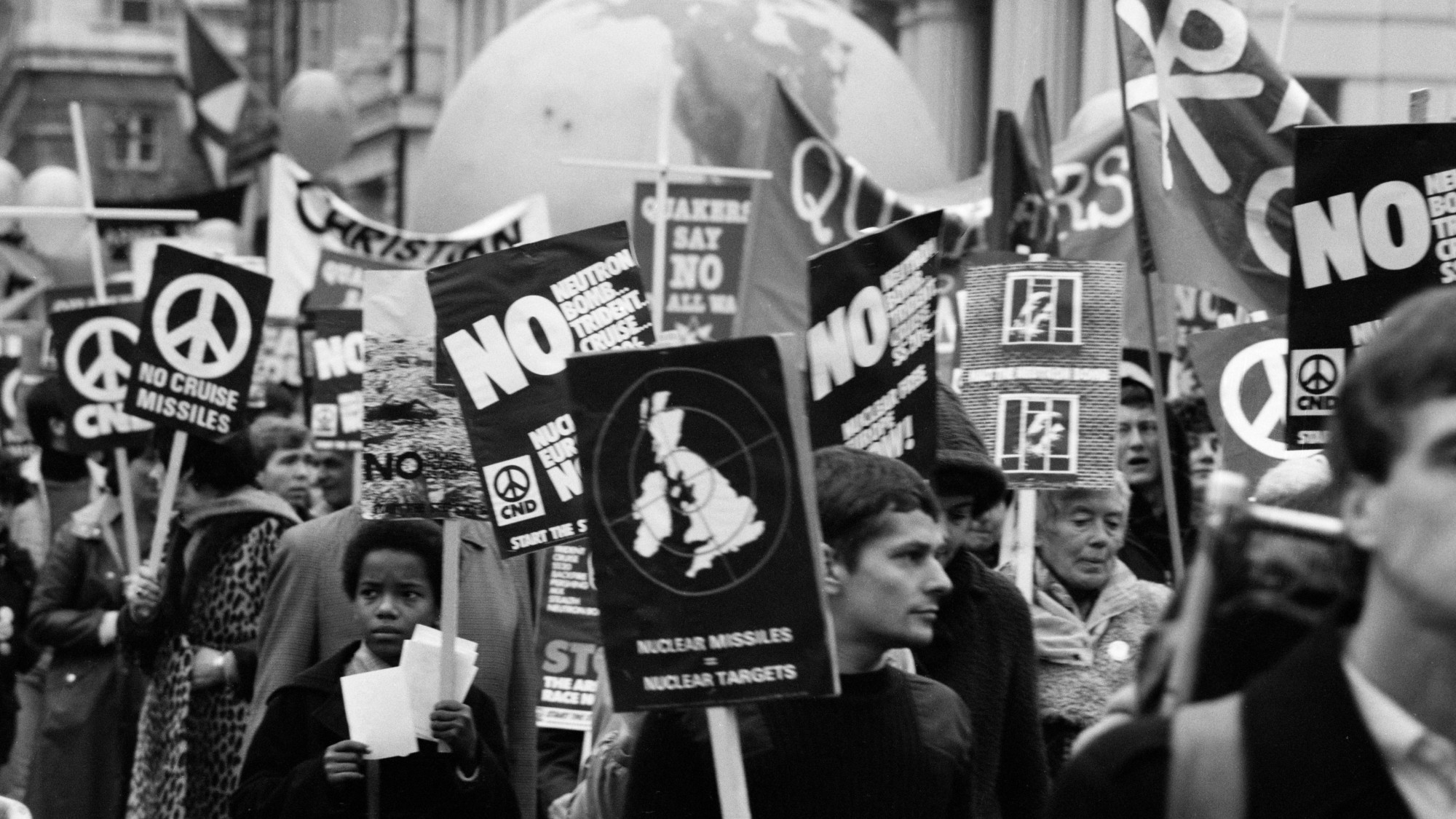Ukraine-Russia: are both sides readying for nuclear war?
Putin changes doctrine to lower threshold for atomic weapons after Ukraine strikes with Western missiles

A free daily email with the biggest news stories of the day – and the best features from TheWeek.com
You are now subscribed
Your newsletter sign-up was successful
Vladimir Putin has signalled that Russia is ready to start a nuclear war after Ukraine fired Western weapons at Russia for the first time.
Hours after Joe Biden finally relented and allowed Kyiv to strike inside Russia with US-supplied weapons, his Russian counterpart "signed into law a nuclear doctrine that lowered the threshold" to use its massive arsenal of atomic weapons, said The Telegraph.
Russia has been warning the West for months that any Ukrainian attack with Western-made weapons would be considered direct involvement by Nato in the war in Ukraine and trigger a response. Now, the updated nuclear doctrine states that if Russia's "territorial integrity" is threatened or if it is attacked by a non-nuclear armed nation – i.e. Ukraine – supported by a nuclear power, such as the US or Britain, it can retaliate with nuclear weapons.
The Week
Escape your echo chamber. Get the facts behind the news, plus analysis from multiple perspectives.

Sign up for The Week's Free Newsletters
From our morning news briefing to a weekly Good News Newsletter, get the best of The Week delivered directly to your inbox.
From our morning news briefing to a weekly Good News Newsletter, get the best of The Week delivered directly to your inbox.
What did the commentators say?
In theory, Putin could now "reach for the red button", said Sky News' Moscow correspondent Ivor Bennett, seeing as the US missiles fired by Ukraine "meet the new criteria" of the Russian nuclear doctrine.
But there are "compelling reasons" why he won't. Russia's main ally, China, "won't tolerate it". More importantly, Putin is "unlikely to risk incurring the wrath" of the incoming US administration. Donald Trump has already indicated he will pursue a "swift conclusion" to the war, which would "likely be in Russia's favour".
"Launching a nuclear weapon now would almost certainly derail that," said Bennett. But there is always a chance that Russia "could do the unthinkable" when, in reality, "few predicted" its full-scale invasion of Ukraine.
Nevertheless, it was "telling that the reaction in Washington on Tuesday was just short of a yawn", said The New York Times. "Officials dismissed the doctrine as the nothingburger of nuclear threats," wrote David E. Sanger, an American nuclear strategy expert. The Ukraine war has "inured Washington and the world to the renewed use of nuclear weapons as the ultimate bargaining chip".
A free daily email with the biggest news stories of the day – and the best features from TheWeek.com
"This is a signalling exercise, trying to scare audiences in Europe – and to a lesser extent, the United States – into falling off support for Ukraine," said Matthew Bunn, a Harvard professor who has tracked nuclear risks for decades and argues that the probability of Russia using nuclear weapons in the short term "hasn't increased".
The new doctrine is the latest attempt to "turn the world's largest nuclear arsenal into something the world might actually fear again", said Sanger, giving Putin "the global influence that his gas-and-war-economy so far cannot".
That said, Ukraine's attacks could prompt the Kremlin to think Washington had encouraged them specifically to weaken Russia's nuclear deterrent, said James Acton, co-director of the nuclear policy programme at the Carnegie Endowment.
"If Moscow believes that Washington could conduct a successful preemptive attack on its nuclear forces, its trigger finger could get very itchy," said Acton, quoted in The Associated Press. Russia might "launch a large-scale nuclear attack based on a false or misinterpreted warning".
And if it does, could Ukraine retaliate? That question was raised "a little insincerely" by Volodymyr Zelenskyy recently, said James Snell, senior advisor at the New Lines Institute for Strategy and Policy, in The Spectator. The Ukrainian president mused that, without Nato membership, Ukraine would have to "look for protection of another kind: nuclear arms".
Every Ukrainian agrees that giving up its "significant stockpile" of nuclear weapons after the Soviet Union fell was a mistake. It only joined nuclear non-proliferation treaties in return for a guarantee of its independence. It gave up its deterrent "and got invaded anyway – twice".
But the science of building a rudimentary nuclear bomb is 80 years old; nuclear programmes have been built by "poor and isolated countries" in the past – look at North Korea. It's "technically possible" for Ukraine to do so.
But it likely wouldn't make a difference. Countries with a nuclear arsenal "are attacked and lose wars all the time", and for all his "dark humour", Zelenskyy "would rather have a defence pact than a bomb". That said, "his country traded one for the other" last time, "and ended up with neither".
What next?
The attack on Russia's ammunition dump near Bryansk, which US officials believe holds munitions that the newly arrived North Korean soldiers need for their weapons, is a signal that the West wants "escalation", Russia's foreign minister told the G20 summit.
Russia still has the world's biggest nuclear arsenal, and its diplomats say the situation is "comparable to the 1962 Cuban Missile Crisis" when Russia and the US came closest to international nuclear war, said Reuters. They claim the West is "making a mistake if it thinks Russia will back down over Ukraine".
But Keir Starmer has promised Russia's "irresponsible rhetoric" on nuclear weapons will not affect support for Ukraine. Speaking at the G20 summit, the prime minister said the UK would "ensure Ukraine has what is needed for as long as needed".
Harriet Marsden is a senior staff writer and podcast panellist for The Week, covering world news and writing the weekly Global Digest newsletter. Before joining the site in 2023, she was a freelance journalist for seven years, working for The Guardian, The Times and The Independent among others, and regularly appearing on radio shows. In 2021, she was awarded the “journalist-at-large” fellowship by the Local Trust charity, and spent a year travelling independently to some of England’s most deprived areas to write about community activism. She has a master’s in international journalism from City University, and has also worked in Bolivia, Colombia and Spain.
-
 Why is the Trump administration talking about ‘Western civilization’?
Why is the Trump administration talking about ‘Western civilization’?Talking Points Rubio says Europe, US bonded by religion and ancestry
-
 Quentin Deranque: a student’s death energizes the French far right
Quentin Deranque: a student’s death energizes the French far rightIN THE SPOTLIGHT Reactions to the violent killing of an ultraconservative activist offer a glimpse at the culture wars roiling France ahead of next year’s elections
-
 Secured vs. unsecured loans: how do they differ and which is better?
Secured vs. unsecured loans: how do they differ and which is better?the explainer They are distinguished by the level of risk and the inclusion of collateral
-
 What is ‘Arctic Sentry’ and will it deter Russia and China?
What is ‘Arctic Sentry’ and will it deter Russia and China?Today’s Big Question Nato considers joint operation and intelligence sharing in Arctic region, in face of Trump’s threats to seize Greenland for ‘protection’
-
 Is the Chinese embassy a national security risk?
Is the Chinese embassy a national security risk?Today’s Big Question Keir Starmer set to approve London super-complex, despite objections from MPs and security experts
-
 New START: the final US-Russia nuclear treaty about to expire
New START: the final US-Russia nuclear treaty about to expireThe Explainer The last agreement between Washington and Moscow expires within weeks
-
 What would a UK deployment to Ukraine look like?
What would a UK deployment to Ukraine look like?Today's Big Question Security agreement commits British and French forces in event of ceasefire
-
 Would Europe defend Greenland from US aggression?
Would Europe defend Greenland from US aggression?Today’s Big Question ‘Mildness’ of EU pushback against Trump provocation ‘illustrates the bind Europe finds itself in’
-
 The history of US nuclear weapons on UK soil
The history of US nuclear weapons on UK soilThe Explainer Arrangement has led to protests and dangerous mishaps
-
 Did Trump just end the US-Europe alliance?
Did Trump just end the US-Europe alliance?Today's Big Question New US national security policy drops ‘grenade’ on Europe and should serve as ‘the mother of all wake-up calls’
-
 Taiwan eyes Iron Dome-like defence against China
Taiwan eyes Iron Dome-like defence against ChinaUnder the Radar President announces historic increase in defence spending as Chinese aggression towards autonomous island escalates